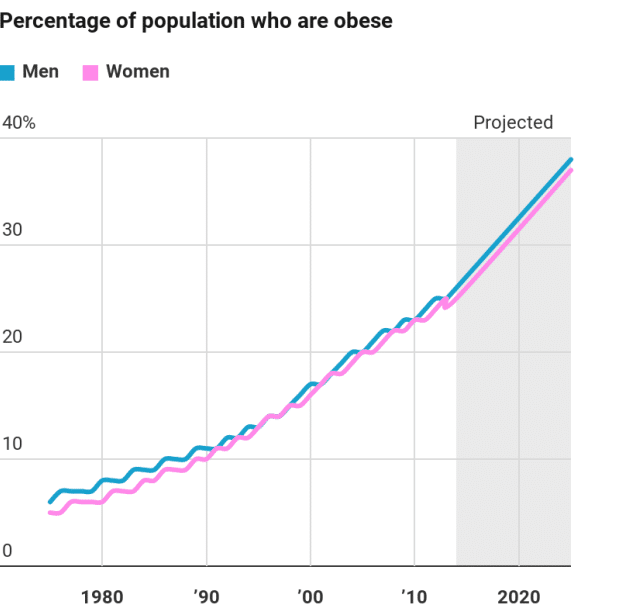When Two Pandemics Collide
At the start of lockdown, countries took action on the worrying range of food concerns from the elderly and vulnerable to food security, hunger, and food supply chains. However, although it has been discussed in great detail that a person’s weight can have a huge impact on their chances of contracting and surviving the virus, the risk that it poses to increasing obesity remains largely undiscussed.
The obesity crisis is in itself its own pandemic that is constantly on the rise, costing millions in healthcare and treatment each year and is one of the leading related or underlying causes of death as well as long term health conditions. With Coronavirus comes a scary reality for people struggling with obesity, that they are not only more at risk of catching the virus but are more likely to suffer from severe illness, hospitalisation or even death as a result.
How has the pandemic negatively impacted the obesity crisis?
During Lock down Martin and Marion Shirran, the joint Clinical Directors of the Gastric Mind Band Clinic invested over twelve months writing, editing and recording the all new downloadable weight loss treatment My Weigh Less, visit the site here https://myweighless.com/
Lockdown Life
During the times when the pandemic was at its peak and the lockdown was at its strictest, people were left isolated to their homes, only leaving the house for essential travel, to collect groceries or medication or for one daily walk. This can be extremely challenging for anyone but for those who are overweight, limiting the time they might usually be going to work, commuting, walking around the shops, or socialising can have a great impact on how much daily activity they do and lead to further weight gain.
Economic Impact
Not only has the pandemic meant the loss of jobs across multiple sectors but with the economy struggling, does the hope of finding a new job for some people, especially those who are obese can be near impossible. A lack of income can lead to problems affording healthy food that then has a negative impact on their health.
Motivation
It’s unlikely that a single person has managed to endure the pandemic so far without having moments of feeling low, down, lost, sad, lazy, or depressed. Missing normal everyday life and adjusting to changes in the workplace, school, home, and social life can cause a vicious cycle of feeling unmotivated, leading to poor food choices and lethargy which results in reduced movement and weight gain as the cycle continues.
Boredom
The pandemic created unwanted change in our environments, emotions, and mindsets which in turn results in the perfect situation for non-essential eating. Whether it’s from jumping on the baking bandwagon to snacking through the latest boxset binge, food is often used as a comfort and in such uncertain times used more than ever.
Limited Food Resources
Even if a person is trying to make sensible, healthy food choices, at the peak of the pandemic, getting hold of fresh produce was extremely difficult and often only attainable after long queues outside supermarkets. For people in the vulnerable category, going into a supermarket or shop should have been avoided in order to isolate at home and stay safe but with online delivery slots mostly unavailable, many had to risk going out in order to survive. This also tended to cause people to stock up on less healthy, non-perishable, or long-life items to extend the time between shops and buy only small amounts of fresh fruit and vegetables as they only last a few days.
Mental Health
It’s no question as to whether the pandemic has had a negative impact on some people’s mental wellbeing and psychosocial health with people feeling anxious, stressed and depressed. This is only exacerbated by the worsening socioeconomic conditions, physical distancing, loneliness, and uncertainty in what the future holds. All of this can have a negative impact on food-related behaviours and lead to things such as food hoarding, comfort eating, impulse eating, and lead to altered food cue exposures and emotional eating amongst other things.
Children
With schools closed and many parents having to work from home, lots of children who already struggled with their weight are left on devices, gaming, watching TV, and similar sedentary activities. For long periods of time. Children are also more likely to snack from boredom during this time and indulge in unhealthy, processed, calorie-dense foods and treats which are at hand and don’t need any preparation.
The Non-Surgical Weight Loss Solution That Works from GMBand
Our Psychology-based Gastric Mind Band® (GMB) weight loss treatment, focuses on Cognitive Behaviour Therapy (CBT) and delivers a permanent, effective, non-surgical solution that works. Our GMB treatment has changed the lives of hundreds of men and women all over the world and it can change your life too. The GMB treatment is normally completed over either three or four days at our Elite Clinic in Fuengirola, Spain. However, we have now further upgraded our treatment package so that it can be delivered to you in the comfort and security of your own home, live via Skype or Zoom, making it available to those who are unable to travel. To find out more about Gastric Mind Band Treatment, how it works, treatment options, and our success stories, please do not hesitate to contact us and one of our friendly advisors will be happy to help.


